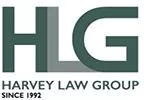Since the launch of the Canada Startup Visa ("SUV") program in 2013, qualifying start-up founders and their families can apply to settle permanently in Canada via a fast track, one-step process. Having helped hundreds of entrepreneurs and their families immigrate to Canada via this program, we, Harvey Law Group, would like to share in this article some tips prospective SUV applicants can follow to ensure that they have a smooth and successful SUV application process.
Step 1: Finding a Designated Entity
To apply for permanent residence via the SUV program, an applicant must show that he/she is committed to developing in Canada an innovative business that can compete on a global scale. To demonstrate such a commitment, SUV applicants must obtain support from an experienced IRCC designated business entity to help them get their innovative business off the ground.
To date, over 60 Canadian designated entities are capable of helping foreign entrepreneurs grow their startups into fully fledged businesses. While some are investor groups that aim at supporting commercialization stage ventures with well-developed business plans, such as venture capital entities or angel capital entities, others, such as business incubators, can support ventures in early, conceptual stages.
Regardless the type of entities one is looking to work with, we recommend that SUV applicants choose to work only with designated entities that (i) have a proven track record of nurturing successful businesses in their field of work, and (ii) have in place a comprehensive due diligence process for assessing SUV candidates' qualifications.
It is important to note that, although IRCC does not require that designated entities adopt a specific approach to assess SUV candidates' qualifications, they do require SUV applicants to demonstrate, upon request, that they only received the designated entities' endorsement to apply under the SUV program after undergoing an objective due diligence process that is in line with the industry standards.
Therefore, if it appears that a designated entity readily offers to support an applicant's SUV application without reviewing the applicant's business proposal or professional qualifications, it may be necessary for the applicant to consider if it is appropriate to apply for permanent residence through such a designated entity. Afterall, if the applicant cannot demonstrate with evidence that a set of independent, objective assessments are conducted when he/she applies for support from the designated entity, it could be difficult to establish the legitimacy of the relationship with the designated entity to support a positive SUV decision.
Step 2: Demonstrating that the Applicant Has the Necessary Experiences to Lead the Development of the Start-up Venture
Aside from obtaining support from a IRCC designated entity, immigration officers frequently review the information SUV applicants have provided in their immigration files to determine if the applicants have the necessary knowledge and/or experiences to develop their proposed ventures.
If, for example, an applicant aims to develop an advanced computing system via the SUV program and yet the information provided reveals that the applicant has no experience working with computers or high tech products, the immigration officer may question if the applicant has what it takes to lead the proposed venture and correspondingly challenge his permanent residence application on that basis.
To avoid such a situation, we recommend that SUV applicants work with experienced immigration lawyers to prepare their application packages. A well-prepared application package should not only highlight the education, experiences and professional network the SUV applicant can rely on to found and lead his proposed venture, but it should also demonstrate that the applicant is mindful about his inherent weaknesses and has developed actionable plans to help him overcome the anticipated challenges in his startup journey.
Step 3: Demonstrating That the Applicant is Serious About Developing the Proposed Business
Last but not least, since the SUV program is built upon an expectation that applicants will help advance Canada's economy and technological frontier by operating their innovative startups in Canada, it is important to note that IRCC may refuse an SUV application if they find that the applicant is not seriously engaging in the business he has proposed to develop.
This could happen if IRCC finds that an SUV applicant appears to have spend little time working on the venture from within Canada or if the applicant has not been directly involved in the progress and/or development of his business as promised.
For instance, the Federal Court of Canada has on at least two occasions decided that spending less than two weeks working on a venture from within Canada during the application process was evidence that a SUV applicant is not committed to diligently developing his business. In fact, unless a reasonable explanation can be provided (e.g. COVID-19 pandemic, or the need to take care of a sick family member in one's home country), it is typically expected that the SUV applicants spend a consideration amount of time working on their ventures in Canada while their permanent residence applications are being processed.
Therefore, if an SUV applicant wishes to maximize his chances of success in the SUV application, we recommend that the applicant perform what is needed to show that he is an ambitious entrepreneur who intends to run his startup business in Canada. Some ways of demonstrating such commitment include, but are not limited to,
- applying for a work permit to develop the start-up business in Canada,
- making business trips and business contacts to advance the growth of the business,
- employing talents the business needs to assist with developing any proposed product(s),
- performing market research to understand the needs of the business' prospective customers, and
- completing the work needed to build a unique brand identity for the business.
In addition to the above, note that SUV applicants are typically asked to provide documentary evidence of their business progress to support a positive decision on their SUV applications. As such, we recommend SUV applicants to try, as much as possible, to keep their company affairs and business documentation organized throughout their startup journey. Some records one may consider keeping include:
- Company documents (e.g. business plan, incorporation documentation, documentation relating to the company bank account)
- Tax documents
- Office lease agreements
- Business contracts
- Employment contracts
- Invoices
- Flight tickets
- Email exchanges and business meetings with the designated entity and other relevant third parties
We believe following the three tips above could significantly boost one's chances of success in the SUV application.
The content of this article is intended to provide a general guide to the subject matter. Specialist advice should be sought about your specific circumstances.


